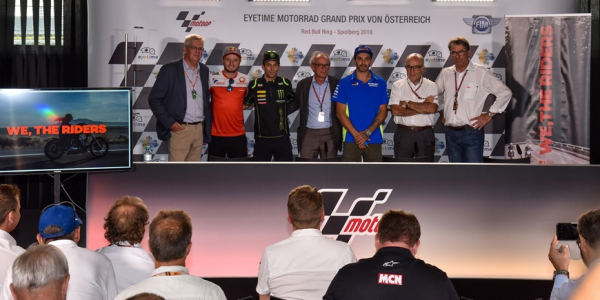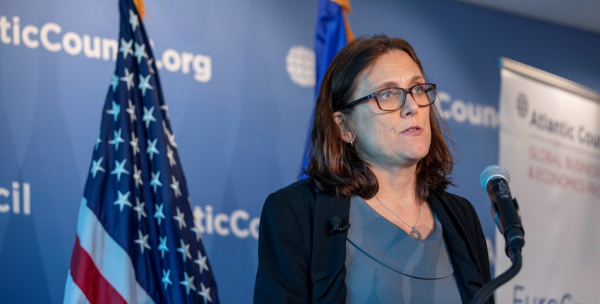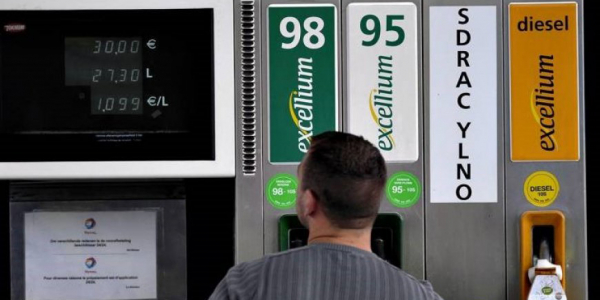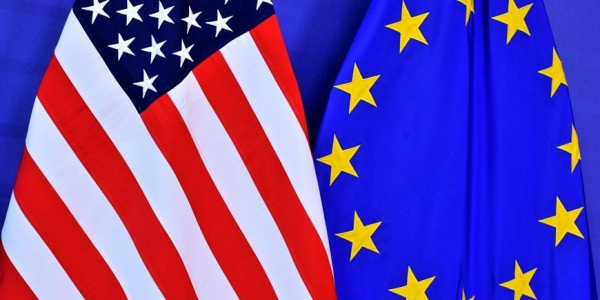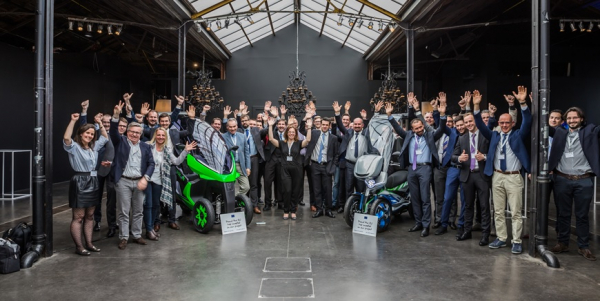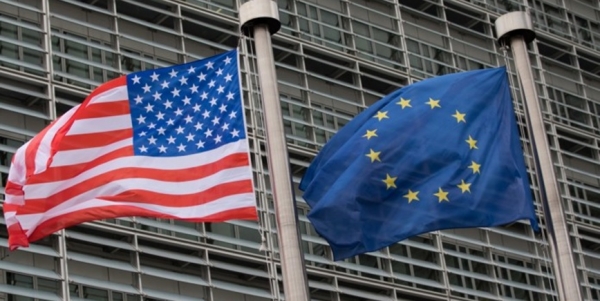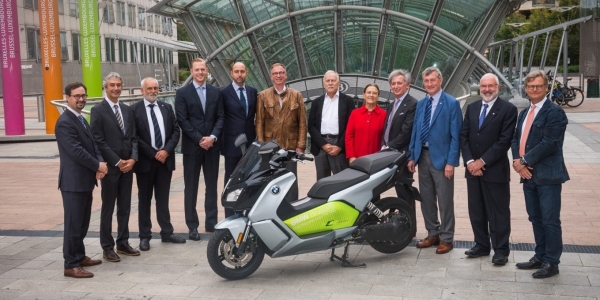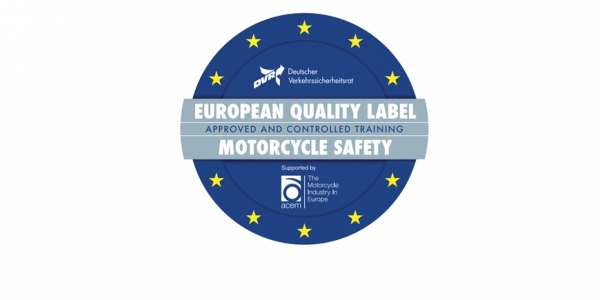Stefan Pierer, CEO of KTM AG and President of the European Association of Motorcycle Manufacturers, participated today at the launch of FIM’s global road safety campaign “We the riders”. The launch took place at the occasion of the Austrian round of 2018 FIM MotoGP World Championship at the Red Bull Ring in Spielberg today.
With the support of ACEM, the European Commission, Dorna, the Red Bull Ring circuit, and MotoGP stars Andrea Iannone (Italy), Marc Márquez (Spain), Jack Miller (Australia), Jorge Lorenzo (Spain), and Johann Zarco (France), the FIM is looking forward to raising the awareness on road safety through the launch of this campaign in front of recognized international media and a large, passionate audience of fans.
“We, The Riders” campaign is a call to action. It is a new movement of responsible motorcyclists from around the world, who all share the joy of riding – and the fight for change. In 2018, it is still far more dangerous than it should be to ride on our roads. That needs to change – and it will only change if all motorcyclists come together as never before to demand it.
“We, The Riders” vision is roads that are safe for everyone. Roads where all are seen, no matter their mode of transport. Roads that are built and planned with everyone in mind. Roads made for the joy of riding – not the fear of crashing.
The FIM will deploy “We, the riders” campaign together with its 113 affiliated federations worldwide. For further information, please visit the official website of the campaign: www.wetheriders.com or check the hashtag #wetheriderswtr on Twitter.
Quote
ACEM President Stefan Pierer explained "as President of the European Association of motorcycle manufacturers; I reaffirm that for all leading manufacturers and member associations the most important issue is safety. The motorcycle riders are vulnerable road users. According to official statistics 50% of the fatalities are caused by a third party and the biggest problem is visibility. That’s why every action and initiative that improves visibility is supported by the industry. ABS became mandatory in Europe and manufacturers have been ready to implement this fundamental safety tool to save lives”.
Vito Ippolito, FIM President, declared “For more than 100 years, the FIM has been representing the interests of motorcyclists – both on and off the track. Every day, road traffic crashes claim nearly 3,500 lives and injure many thousands more, 23% of all lives lost are those of our fellow riders. At the FIM we do not have all the answers and there is still much left to do. That is why we are launching this movement “We, The Riders” because we recognise the potential of people-powered change – the power of a network of individuals with something in common to create real change in the world and improve road safety”.
Carmelo Ezpeleta Dorna CEO commented “Riders ‘safety on track and off the track is our top priority, so Dorna is extremely proud to support this important initiative. We, The Riders campaign is making motorcyclists visibyleon the road and raising awareness to road users about being mindful of everybody they share the roads with. Our World Championship riders are riders who everyday road users share the roads with, so we stand by the FIM on this movement that is very close to our hearts”
Note for editors
The European Association of Motorcycle Manufacturers (ACEM) represents manufacturers of mopeds, motorcycles, three-wheelers and quadricycles (L-category vehicles) in Europe. ACEM members include 17 manufacturing companies and 17 national industry associations.
ACEM manufacturing members, which include some of the largest multinationals in the sector, are: BMW Motorrad, Bombardier Recreational Products (BRP), Ducati Motor holding, Harley-Davidson, Honda, Kawasaki, KTM, KYMCO, MV Agusta, Peugeot Scooters, PIAGGIO, Polaris Industries, Renault, Royal Enfield, Suzuki, Triumph Motorcycles and Yamaha.
Press photos
To download high resolution photos of the launch of the campaign please click here. Photo credit: Giorgio Neyroz.
Press contact
Isabelle Lariviere. FIM communications manager
+41 (0) 22 950 95 00

